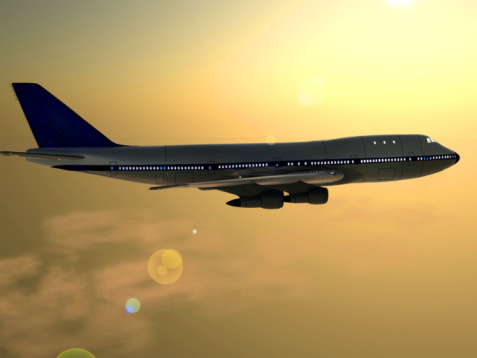Transportation
Israel Flight Bans Not Likely to Hurt U.S. Airline Earnings
Published:
Last Updated:
A Federal Aviation Administration flight ban of U.S. air carriers into Tel Aviv, Israel, may seem as though it is important geopolitical news, but the move may have a very limited impact on overall business conditions of the major U.S. air carriers. With the fighting between Israel security troops and Hamas fighters still ongoing and with a rocket landing close to Tel Aviv’s Ben Gurion Airport, it seems of little surprise that a flight ban has been imposed.
Keep in mind that airlines, understandably so, are feeling a heightened sense of safety and security after a Malaysian Air flight was blown out of the sky last week in the eastern section of the Ukraine.
Delta Air Lines Inc. (NYSE: DAL) led the wave of flight cancellations into Tel Aviv before the Federal Aviation Administration announced a minimum of a 24-hour flight ban of U.S. air carriers into that airspace. American Airlines Group Inc. (NASDAQ: AAL) and United Continental Holdings Inc. (NYSE: UAL) also led the charge to avoid that airspace.
These three carriers fly thousands of flights a day. It seems rational to assume that a couple dozen flight cancellations will not hurt the carrier’s earnings by any measurable amount. Also keep in mind that we are less than a month into the quarterly reporting. The verdict: the flights’ revenue contributions will be easy to make up.
Reports were out that Israel’s transportation minister was far from happy about the FAA decision. The message is that this helps Hamas claim victory in isolating Israel. Still, how can you blame airlines after the Ukraine catastrophe?
A Delta flight from New York turned around after it was already over the Mediterranean Sea and landed in Paris, France, even before the FAA decision. Reports have also been seen that European airline carriers have decided to put in a flight ban.
After the tragic news we have seen in the past five days in the Ukraine, this should be of no surprise. Airlines neglecting security and safety right now would not exactly receive the best reception from would-be passengers. Still, this does make for geopolitical news, and it likely gives enemies of Israel a new target. This appears to be the first time since the Gulf War that flight bans had been seen.
United Continental shares were still up 2.2% at $44.76 shortly before the close of New York trading on Tuesday. Shares of Delta were up 1.3% at $37.65 at the same time, while shares of American Airlines were down by almost 0.4% at $42.31.
ALSO READ: Airline Fee Revenues Skyrocket 1,200% Over 7 Years
If you’re one of the over 4 Million Americans set to retire this year, you may want to pay attention.
Finding a financial advisor who puts your interest first can be the difference between a rich retirement and barely getting by, and today it’s easier than ever. SmartAsset’s free tool matches you with up to three fiduciary financial advisors that serve your area in minutes. Each advisor has been carefully vetted, and must act in your best interests. Start your search now.
Don’t waste another minute; get started right here and help your retirement dreams become a retirement reality.
Thank you for reading! Have some feedback for us?
Contact the 24/7 Wall St. editorial team.